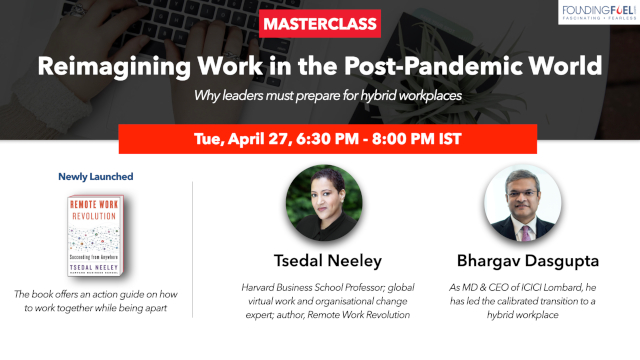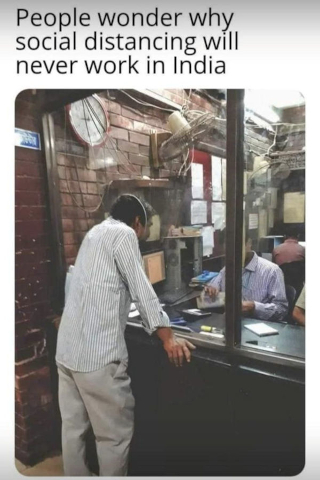[Photo by Gift Habeshaw on Unsplash]
Good morning,
Of late, we’re beginning to hear voices of people asking for more book recommendations and embarking on intellectual journeys. We’re glad to hear these voices. But we’d like to strike a note of caution as well from the pages of Mortimer Adler and Charles Van Doren’s classic, How to Read a Book. “The enthusiasm with which people embark on a course of reading great books often gives way, fairly soon, to a feeling of hopeless inadequacy. One reason, of course, is that many readers do not know how to read a single book very well. But that is not all. There is another reason: namely, that they think they should be able to understand the first book they pick up, without having read the others to which it is closely related…
“Not only are many of the great books related, but also they were written in a certain order that should not be ignored. A later writer has been influenced by an earlier one. If you read the earlier writer first, he may help you to understand the later one. Reading related books in relation to one another and in an order that renders the later ones more intelligible is a basic common-sense maxim of extrinsic reading.
“The utility of this kind of extrinsic reading is simply an extension of the value of context in reading a book by itself. We have seen how the context must be used to interpret words and sentences to find terms and propositions. Just as the whole book is the context for any of its parts, so related books provide an even larger context that helps you interpret the book you are reading.
“It has often been observed that the great books are involved in a prolonged conversation. The great authors were great readers, and one way to understand them is to read the books they read. As readers, they carried on a conversation with other authors, just as each of us carries on a conversation with the books we read, though we may not write other books.
“To join this conversation, we must read the great books in relation to one another, and in an order that somehow respects chronology. The conversation of the books takes place in time.”
Stay at it. The rewards are exponential. And have a good day!
In this issue
- Going agile, virtually
- Learnings from Covid-19
- The problem with social distancing
Have a great day.
Going agile, virtually
In mid-March last year, about a week before the lockdown kicked in, at Founding Fuel, we shifted to an agile way of working: starting with stand-up meetings at 8:30 AM and at 5:30 PM. We didn’t miss attending our collective conversations a single day, except for the weekends. Looking back, these check-in meetings, on Zoom, not only helped us get a firm grip on what we had to accomplish every day, it acted as a “safe space” for the team to share some of their personal challenges, as the lockdown threw up new challenges for each one of us and our families. The screen sharing option on Zoom helped us plan our work transparently, and occasionally, we also relied on the break-out room facility for our curated conversations in the Founding Fuel community).
Since our team was spread across Mumbai, Bengaluru and Noida, during the course of the year, we have ratcheted up our use of virtual tools like Zoom and Google docs to collaborate both in real time and asynchronously, and yet have everyone on the same page. The flexibility it brought in has helped. We found that some people preferred to work late into the night. Others had elderly parents to attend to. Or had to find a quiet time to work and for other members in the family to go to bed. And we used Zoom and Google docs to good effect to collaborate with our extended network of contributors on many of the more involved learning projects.
Despite the challenges brought on by the pandemic, it has been easily one of our most productive years in our six year history. (By the way, we completed our sixth anniversary on March 16. And we have much to be grateful to all of you in our community for the appreciation and the support that you have provided. You have our heartfelt gratitude.)
That’s also why the theme of our next Masterclass on April 27 is of particular interest. We have invited Tsedal Neeley, professor of organisational behaviour at Harvard Business School. Prof Neeley’s new book Remote Work Revolution: Succeeding from Anywhere was published on March 30. We’re a big fan of her work on the global remote work phenomenon, which spans over two decades. Her new book provides a boatload of ideas and case studies of how organisations—and their leaders—can deal with the new challenges thrown up by the pandemic.
Bhargav Dasgupta, CEO & MD of ICICI Lombard, the country’s largest private general insurer, will be joining Prof Neeley for this Masterclass. We have closely followed and studied Dasgupta’s journey in the last one year, as he and his leadership team led the transition from a workplace predicated on working in close physical proximity, to a hybrid model, where more than half the employees work remotely on a permanent basis. This huge transition has been done with a great deal of thought and attention to detail. Dasgupta has co-created the new organisational vision, remained acutely mindful of the need for new skill sets, tools and mindsets, and supported the effort by organisation-wide communication and conversations across their 10,000 strong workforce.

This jugalbandi between a global thought leader and an accomplished practice leader from our part of the world will set the stage for an insightful conversation around both the opportunities, next practices and dilemmas faced by leaders, in reimagining work and the workplace. Don’t miss this opportunity!
Click to register for the Masterclass here.
Learnings from Covid-19
There is much that we take for granted about all that we possess. Take our vital senses for instance—sight, sound, touch, taste and smell. Do we really appreciate it? Turns out, we don’t. But this question has been on the minds of researchers for a long while. They have been attempting to understand if there is a universal hierarchy of human senses. Many polls have it that sight is the most treasured, followed by sound.

[Photo by Ruslan Zh on Unsplash]
But a report in the NewStatesman from the UK says, “more than 300,000 people in the UK alone have suffered, or are still suffering, from ‘long haul’ Covid smell disorders. For those people, Covid-19 has changed not only their way of life but their way of being in the world. This is not an overstatement. Our ability to smell is fundamental to our sense of self: it is a consciousness modulator, a danger detector, a decision-making trigger, a relationship maker-and-breaker. It is the body’s most trusted gatekeeper. And yet for so long we’ve dismissed smell—what its researchers call the “Cinderella sense”—as nothing more than a nice-to-have.
“If we step outside and the spring air feels ‘fresh’, this is partly thanks to smell, but perhaps we might not recognise it as ‘smell’ in any conscious way… We smell because we breathe.”
The report goes on to describe why the sense of smell is an important one and is finally being appreciated in the post pandemic world. “This relationship, between olfaction and the nature of our existence, fascinates the cognitive scientist Ann-Sophie Barwich. She writes in her recent book Smellosophy that ‘odours have always presented an ontological problem’, offering up puzzles about human experience and perception: what does it mean to perceive smell? How do we know that what we perceive is real? I tell Barwich that I no longer feel immersed, that I’m somehow detached, not only from my immediate environment—the smell of the shower, the street after it’s been raining—but also from others. A meal with my flatmate is no longer really ‘shared’; on walks with friends, I notice how often smell comes up—‘that bakery smells amazing’, ‘that man’s aftershave is strong’—and it’s as if we’re moving in different worlds.”
Dig deeper
Still curious?
- Charles Assisi and NS Ramnath share their strategies on finding good books and reading them well. Read: FF Recommends: How to find good books
- Baba Prasad shares his perspective on how organizations and individuals can achieve success through agility. Read: 7 Lessons About Agility: How to Succeed in Turbulent Worlds
- A piece from 2017 from CKGSB Knowledge argues that for a variety of reasons—technological, economic, and social—the office as we knew it for most of the 20th century is going away. We look at the challenges the new office creates for managers and workers. Read: The end of the office: Managing remote workers and other challenges
The problem with social distancing

(Via WhatsApp)
Tell us what you think and find noteworthy.
And if you missed previous editions of this newsletter, they’re all archived here.
Bookmark Founding Fuel’s special section on Thriving in Volatile Times. All our stories on how individuals and businesses are responding to the pandemic until now are posted there.
Warm regards,
Team Founding Fuel
(Note: Founding Fuel may earn commissions for purchases made through the Amazon affiliate links in this article.)

